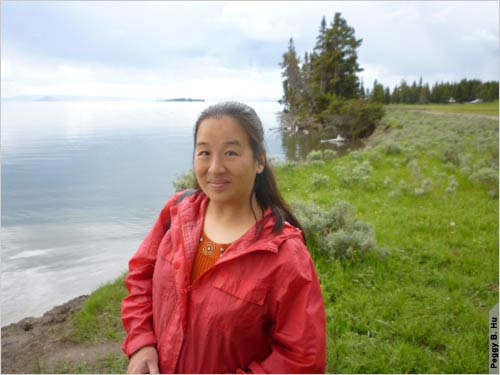As a daughter of immigrants, I’ve been very disturbed by Arizona’s immigration law and recent calls for courts to re-evaluate the citizenship-by-birth clause of the 14th Amendment to the U.S. Constitution.
As I have written before, my parents originally came from Taiwan to the United States to study. While they were here, they had me and my brother, and eventually decided to become naturalized citizens.
Because I have lived in the United States most of my life, I speak with an American accent and have American mannerisms. But my Asian hair texture, skin tone and eyes still seem to be what some people use when guessing my nationality. Although I am a U.S. citizen, thanks in part to the 14th Amendment, it seems not everyone understands this.
A few years ago, for example, my son’s teacher invited me to join his class at lunchtime. I was pleased by the opportunity to meet his classmates and anticipated being asked what I do for a living and other questions kids typically pose to visitors.
Instead, the only question I received was, “Do you speak English?”
At first, I was so stunned by the question that I couldn’t respond. I finally stammered out a brusque, “Yes,” then held my tongue as I felt my face flush with embarrassment and a touch of anger. Why would this child — who herself looked to be of Hispanic origin — wonder if I speak English? I may have Asian features, but why should this call into question my language ability?
The girl’s innocent question triggered a number of similar, unpleasant memories. Growing up, people sometimes would “compliment” me on how well I speak English — something I always found mildly offensive and ironic, considering how often my classmates asked me to edit their English compositions. (You can see where that led me, career-wise!)
Another question people would ask me was, “Where are you from?” When I would tell them that I was born in Buffalo, New York, they would respond, “No, I mean, where are you FROM?” I knew they really were asking, “What is your ancestry?” but I hated the implication that I’m not really American because of my ethnicity. (This past weekend a stranger in a grocery store asked me the same question, and I had to struggle to answer him politely.)
Yes, my parents are originally from Taiwan, but I’m American. I have a U.S. birth certificate, a Social Security number and a U.S. passport. I can contribute to political campaigns, vote in U.S. elections and work for the federal government. I am an Asian-American woman, not an Asian one.
As a co-worker wrote, you really can’t separate diversity from democracy in the United States, and immigration is part of what has made America strong. But it looks as though some people — adults and children — are still learning those facts.

The author during a family vacation to Yellowstone National Park

people are stupid
People in America are so much into judging by appearances and stereotypes that it doesn’t matter what you respond to them when they ask “Where are you from?” I am Puerto Rican living in the U.S. and each time I say I am travleing to Puerto Rico for Christamas or to attend any family event, everyone (not only US born Americans but everybody) says: “So, you are going home!” I always answer that “…my home is now Virginia, USA, not Puerto Rico; home is where you live, and I will be visiting my parents’ home.” People here are so stubborn in the way they want to see you because, they simply dont want to change their stereotype idea of you.
I love when people ask me that question. I usually respond: “I’m from Northern VA like you. Oh you mean what’s my ethnicity? I’m Korean-American.” This usually ends in a awkward chuckle between me and the person questioning me.